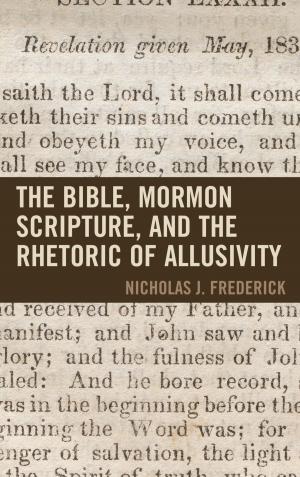Plautus and the English Renaissance of Comedy
Fiction & Literature, Literary Theory & Criticism, European, Eastern European, Drama History & Criticism, Ancient & Classical| Author: | Richard F. Hardin | ISBN: | 9781683931294 |
| Publisher: | Fairleigh Dickinson University Press | Publication: | November 8, 2017 |
| Imprint: | Fairleigh Dickinson University Press | Language: | English |
| Author: | Richard F. Hardin |
| ISBN: | 9781683931294 |
| Publisher: | Fairleigh Dickinson University Press |
| Publication: | November 8, 2017 |
| Imprint: | Fairleigh Dickinson University Press |
| Language: | English |
The fifteenth-century discovery of Plautus’s lost comedies brought him, for the first time since antiquity, the status of a major author both on stage and page. It also led to a reinvention of comedy and to new thinking about its art and potential. This book aims to define the unique contribution of Plautus, detached from his fellow Roman dramatist Terence, and seen in the context of that European revival, first as it took shape on the Continent. The heart of the book, with special focus on English comedy ca. 1560 to 1640, analyzes elements of Plautine technique during the period, as differentiated from native and Terentian, considering such points of comparison as dialogue, asides, metadrama, observation scenes, characterization, and atmosphere. This is the first book to cover this ground, raising such questions as: How did comedy rather suddenly progress from the interludes and brief plays of the early sixteenth century to longer, more complex plays? What did “Plautus” mean to playwrights and readers of the time? Plays by Shakespeare, Jonson, and Middleton are foregrounded, but many other comedies provide illustration and support.
The fifteenth-century discovery of Plautus’s lost comedies brought him, for the first time since antiquity, the status of a major author both on stage and page. It also led to a reinvention of comedy and to new thinking about its art and potential. This book aims to define the unique contribution of Plautus, detached from his fellow Roman dramatist Terence, and seen in the context of that European revival, first as it took shape on the Continent. The heart of the book, with special focus on English comedy ca. 1560 to 1640, analyzes elements of Plautine technique during the period, as differentiated from native and Terentian, considering such points of comparison as dialogue, asides, metadrama, observation scenes, characterization, and atmosphere. This is the first book to cover this ground, raising such questions as: How did comedy rather suddenly progress from the interludes and brief plays of the early sixteenth century to longer, more complex plays? What did “Plautus” mean to playwrights and readers of the time? Plays by Shakespeare, Jonson, and Middleton are foregrounded, but many other comedies provide illustration and support.















